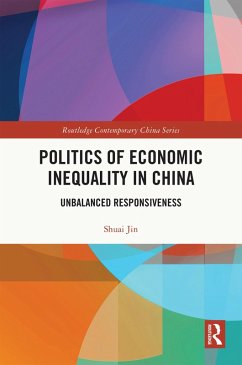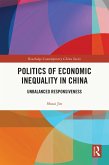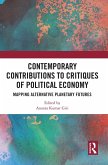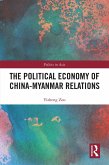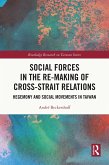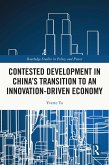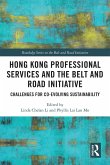The book highlights how the Chinese Communist Party (CCP) has responded to dissatisfaction over inequality, with both propaganda and policy, revealing how the responsiveness in these two arenas is unbalanced. Arguing that while CCP propaganda claims to reduce inequality, its welfare programs have been stratified, unfair, and regressive, aggravating instead of alleviating inequalities. By utilizing data from multiple national surveys, the book reveals that the discrepancy between propaganda and policy ultimately generates further dissatisfaction and strong demands for redistribution. The findings of this study indicate how unmitigated and prolonged economic inequality could be a real threat to the sustained rule of the CCP regime.
Providing a new theory, applicable to authoritarian and especially communist regimes, demonstrated through the lens of China, this book will be a valuable resource to students and scholars of Chinese studies, political science, and public policy.
Dieser Download kann aus rechtlichen Gründen nur mit Rechnungsadresse in A, B, BG, CY, CZ, D, DK, EW, E, FIN, F, GR, HR, H, IRL, I, LT, L, LR, M, NL, PL, P, R, S, SLO, SK ausgeliefert werden.
Kevin J. O'Brien, Jack M. Forcey Professor of Political Science, UC Berkeley, USA
"Jin's book uses innovative survey data to show how economic inequality in China exacerbates social conflicts. Her analyses of attitudes and leaders' rhetoric about pension, welfare, and poverty reduction programs demonstrates that these issues are highly salient for Chinese people."
Sara McLaughlin Mitchell, F. Wendell Miller Professor, University of Iowa, USA

